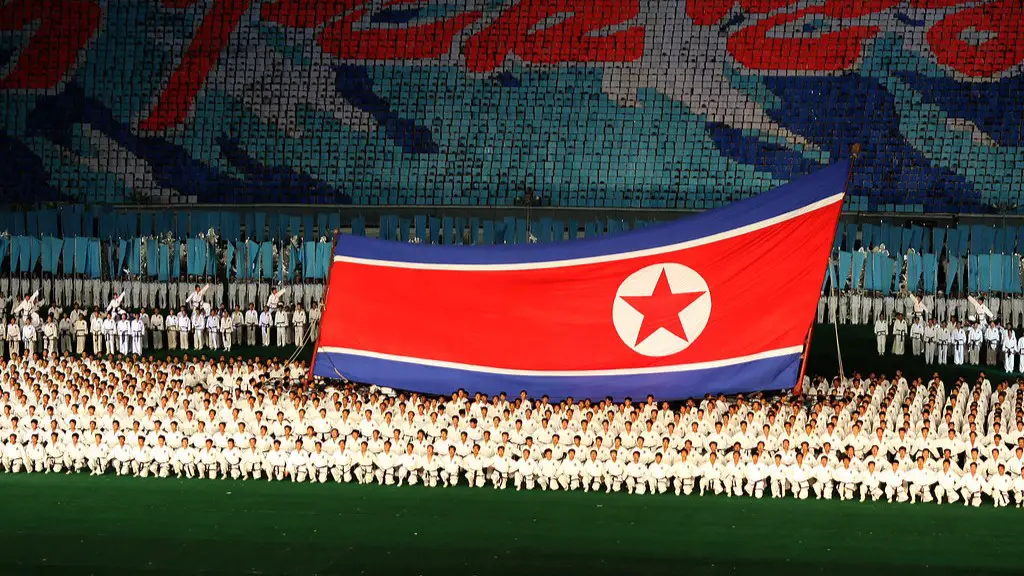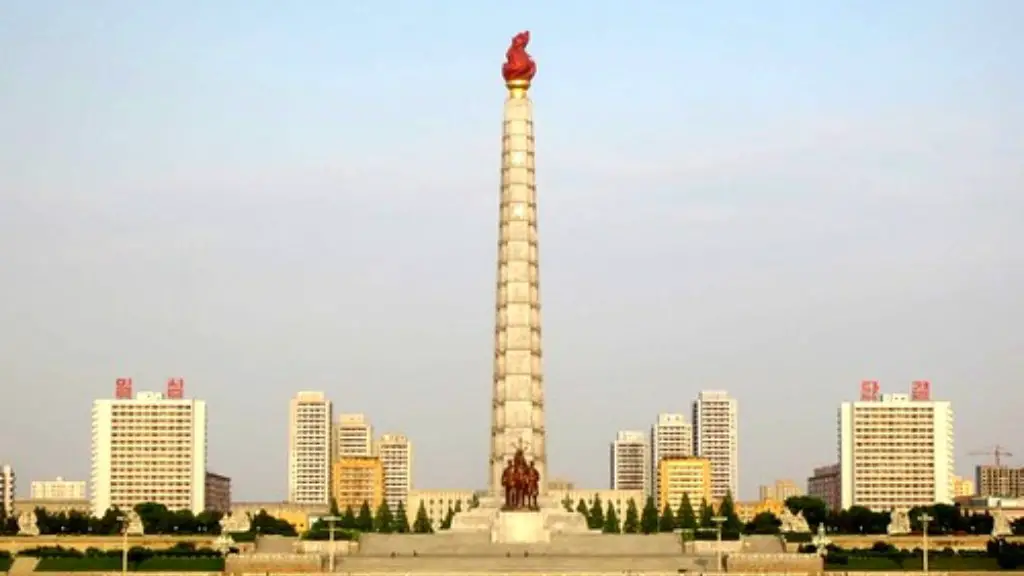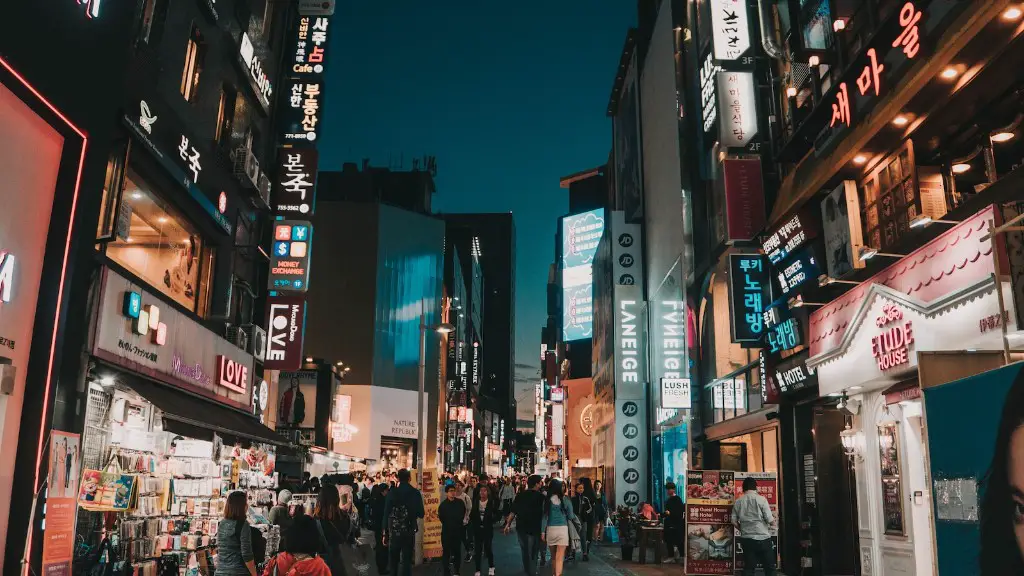Introduction
There has been much speculation over the years as to whether North Korea has globalization or not. The politics, economy, and the strict control maintained by the reclusive regime, has often led to the question of whether North Korea is really open to global influence beyond its own borders. In this article, we will explore the various aspects of North Korea’s connection and affiliations with the global economy, and discuss whether it is in fact a globalized nation.
History
North Korea has long been a closed-off state, separated from the rest of the world economically and socially. Following the Korean War, the Korean government in Pyongyang became more and more reclusive, and took control of all economic matters within the country. This meant that North Korea became largely insulated from the rest of the world, and kept itself socially and economically isolated.
Although there has been some semblance of international trade, most of it has been done through China and Russia, North Korea’s closest partners. North Korea’s isolation has earned it the nickname of the “Hermit Kingdom” and has prevented it from becoming a real player on the international scene.
Relationships with other countries
When it comes to North Korea’s relationships with other countries, it is clear that there is no real aspiration for global influence. North Korea’s leaders have a history of maintaining their animosity towards many countries, mainly the United States and its allies. Its warm relations with China and Russia are mainly outward solutions to economic matters, and beyond that, North Korea is not really interested in political or economic relationships with many other countries.
Furthermore, the United Nations has established a number of sanctions against North Korea due to the country’s aggressive policies. These sanctions have limited economic growth, not just within the country, but its ability to trade with the wider world.
Militarization
Another area that has further isolated North Korea from the rest of the world is its focus on militarization. North Korea has been known to have the fifth largest military in the world, according to the latest estimates. It has placed much emphasis on strengthening its military capabilities and has developed nuclear weapons, which have led to sanctions from the United Nations. This increase in militarization has not only placed North Korea at a distinct disadvantage globally, but has also made it even more difficult for North Korea to become a part of the global community.
Economy
The economy of North Korea is largely controlled by the government and by the ruling elite. It is a closed economy that is inefficient and largely static, relying heavily on imports from China and Russia, and international aid. North Korea is largely dependent on international aid to survive, and without this, it is unable to meet the basic needs of its citizens. This is mainly due to the isolated nature of North Korea, which has stunted economic growth and prevented the country from taking part in the global economy.
Conclusion
Based on the evidence above, it is clear that North Korea does not have global influence or coverage at present. This is due to its closed nature and militarized focus, as well as its reliance on international aid and imports. It is likely that North Korea will remain isolated as long as these trends continue, and that the country will not be able to become a global player any time soon.
Global Impact
The isolation of North Korea has caused a number of serious problems in the world today. One of the most serious of these is the threat posed by North Korea’s nuclear arsenal. As the country remains largely reclusive, there is little oversight or regulation of its nuclear activity, which increases the risk of a nuclear conflict.
Furthermore, North Korea’s reclusiveness has made it a target for other countries, who are keen to exploit its resources and influence in the region. This has further led to geopolitical tensions, and has further entrenched the power of North Korea’s leaders.
Globalization of North Korea
In recent years, there have been a number of attempts by international diplomatic efforts to try and open up North Korea to the rest of the world. This has mostly involved negotiations with China and to a lesser extent the United States over the withdrawal of certain parts of North Korea’s nuclear arsenal. So far, these have not been successful, but they show that there is an appetite, both domestically and internationally, to open up North Korea to the rest of the world.
The international community has also tried to encourage North Korea to open up its economy, by allowing access to foreign investment, and providing economic aid and technical assistance. This has been met with some success and has allowed North Korea to become somewhat integrated into the global economic and financial systems.
Trade
North Korean leaders have also tried to tap into global markets in order to boost their own economy. This has included pursuing trade agreements with a number of countries, and attempting to attract foreign investment and capital by offering tax breaks and other incentives.
Despite these efforts, North Korea’s economy is still largely isolated, and its leaders have been reluctant to open it up further, despite the potential benefits this could bring. This reluctance is likely to continue, at least until there is a serious change in the political and economic climate within the country.
Cultural Aspects
North Korean culture is unique in its own right, and is still largely confined to the Korean peninsula. This has led to a distinct set of cultural values, customs, and beliefs, which have made North Korea an outlier from the rest of the world.
These cultural aspects have led North Korea to remain relatively uninfluenced by global trends, and have meant that the country remains largely isolated from the wider world. This has ensured that North Korea remains a distinct entity, and that its cultural customs and values remain largely preserved, despite the rest of the world’s attempts to influence it.
Education
The education system in North Korea is also a major factor in the country’s lack of globalization. North Korea’s education system is heavily regulated by the government and is largely focused on instilling loyalty to the country’s leaders and emphasizing the importance of nationalist values. This means that many North Koreans are largely unaware of the outside world, and are largely insulated from the global trends.
This lack of education has also led to a lack of opportunity, as most North Koreans are not equipped with the skills and knowledge to effectively compete in the global economy. Furthermore, the lack of access to international media, books, and academic journals, make it difficult for North Koreans to become aware of international events and trends.
Social Media
Social media is one way in which North Koreans can gain access to global trends and news, but its use is highly regulated by the government and access is strictly monitored. Though there have been some instances of North Koreans accessing social media, most of these have been limited to the ruling elite, and access is usually limited to a few select citizens.
Despite this, North Koreans have still managed to gain access to international news and sports, even if it does not conform to the strict rules of the North Korean government. This has allowed some North Koreans to gain an understanding of global affairs, and in some cases, even allowed them to participate in the global community in some small way.
Conclusion
Overall, it is clear that North Korea is still largely isolated and uninfluenced by global trends. Its political and economic policies have kept it removed from the global community, while its focus on militarization and its reclusive nature have hindered any attempts to open up its economy and society. This has left North Korea in a state of limbo, unable to reap the benefits of globalization, but unable to completely escape its current predicament.



